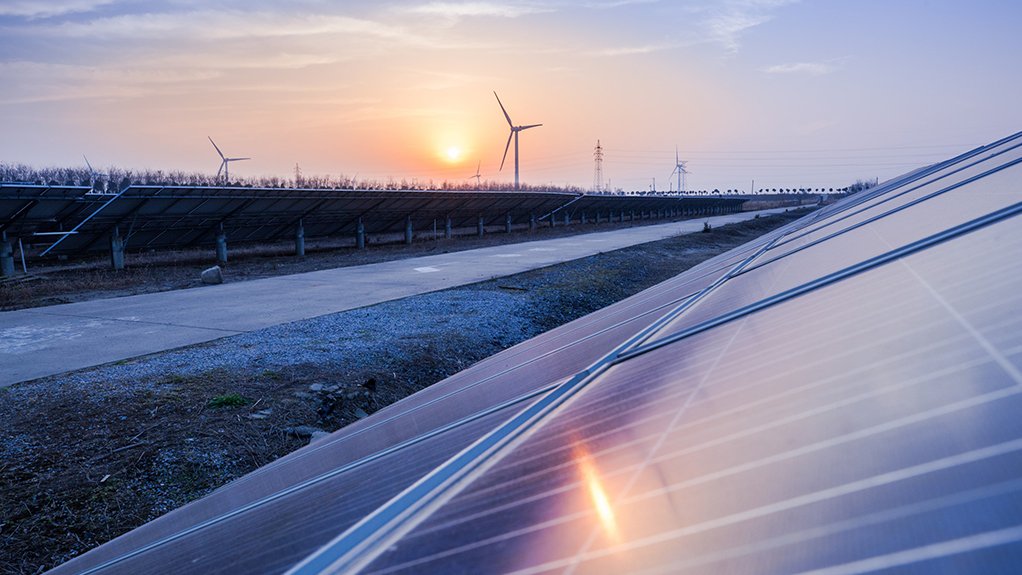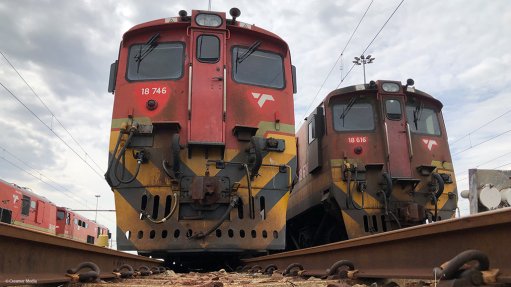Only 40% of developing-country utilities are financially sustainable, World Bank warns
The majority of electric utilities in developing countries are ill-equipped to meet growing demand for power and add more renewable energy into the grid, thereby hindering the meeting of global energy transition goals to provide clean, reliable and affordable electricity to all, development cooperation organisation the World Bank reports.
'The Critical Link: Empowering Utilities for the Energy Transition' report, published this week, showed that only 40% of developing country utilities are able to cover their operating and debt service costs.
The global energy transition and universal energy access goals present opportunities to improve utility performance. However, only well-run and well-regulated utilities will be able to provide clean, affordable electricity to an ever-expanding customer base, while earning a reasonable return on investment.
“As the stewards of the world’s power grids, utilities will be at the heart of efforts to decarbonise power supply and transmit more reliable electricity that is vital to propel economies, create jobs and improve the lives of millions of people,” comments World Bank infrastructure VP Guangzhe Chen.
“Policy makers, regulators and development financiers need to step up to empower utilities through robust policies and more long-term financing to deliver on the promise of clean and accessible energy for all,” he says.
Low-income and lower-middle-income countries face the most acute challenges, as high costs, low tariffs, transmission and distribution losses, inefficient payment collection and poor planning perpetuate cycles of underperformance, burdening government budgets while leaving many consumers without reliable power.
“These financial and operational hurdles also act as deterrents to investors, preventing many utilities from raising private capital at affordable rates and holding back critical investments in grid modernisation and upgrades.”
Additionally, the accelerated push to transmit more variable renewable energy, including solar and wind power, coupled with the urgency to provide electricity to nearly 700-million people without electricity access today, will further strain weak utilities’ financial sustainability and test their technical capacity, the report highlights.
“Laying the foundations for sustainable power utilities starts with governments, which can craft supportive policies and transparent procurement rules that reduce investor risk and streamline infrastructure development.
“Regulators must ensure that utilities are able to recover reasonable costs through tariffs and encourage investment in efficient, resilient networks,” the report states.
Even in countries with sound policies and regulations, utilities must improve their billing and metering and embrace better business practices and new technologies to build trust with customers and investors.
For many utilities, achieving the energy transition and universal electricity access will create additional challenges, further threatening performance, and requiring massive upfront capital investment, mainly from the private sector.
However, access to private financing remains limited and expensive for many utilities in low- and middle-income countries. Owing to the high cost of capital, World Bank estimates show that the price tag for decarbonising power systems in low- and middle-income countries is more than 30% higher than in developed countries.
“Given the scarcity of public funding, development financiers have a crucial role to play in offsetting the high cost of the transition through concessional capital for utilities and risk mitigation instruments for private utility investors,” the World Bank says in the report.
To achieve an energy transition, utilities will need to significantly increase the share of renewable energy such as wind and solar in their generation mixes.
Renewables such as wind and solar will only be transformative and the energy transition successful if electric utilities, which are the critical link of the power system, are strong.
However, in many developing countries, utilities and the electrical grids they operate are in dire straits, and already struggling to deliver affordable and reliable power.
They will need to modernise networks to integrate these variable power sources into the grid. They will also need to manage ever-more varied and complex power needs, as people charge electric vehicles, more electricity is used in industry, and household rooftop solar transforms consumers into energy producers.
“Utilities will need to do all this, while connecting hundreds of millions of new customers, especially in sub-Saharan Africa,” the World Bank report notes.
The solution will be collective action from policy-makers, regulators, development financiers and utilities themselves to help ensure utilities meet growing electricity demand and contribute effectively to the energy transition.
Utilities need to be financially sustainable so they can mobilise new investments to modernise networks and manage ever-more complex customer needs.
However, even if governments, regulators and utilities all play their part, achieving the energy transition and universal access will create incremental costs for some utilities, the report emphasises.
“Given the global benefits of decarbonisation, the report strongly advocates for sufficient international concessional financing to help utilities in developing countries reduce the cost of the energy transition,” the World Bank emphasised.
Most electric utilities in developing countries are ill-equipped to meet growing demand for power and add more renewable energy into the grid, thereby hindering global energy transition goals to provide clean, reliable and affordable electricity to all.
High costs of supply, low tariffs, operational inefficiency, and poor sector planning and procurement often create persistent cycles of underperformance.
“Our modelling for a typical utility in the developing world suggests a 1.2 percentage point decrease in its cost of capital would be required to offset the incremental costs of decarbonising its power supply.”
Further, development financiers play a key role in offsetting these costs by providing capital at lower interest rates than commercial financing, the report added.
“Well-run, well-regulated utilities that operate in transparent, supportive policy environments will be best placed to mitigate the challenges and seize the opportunities presented by a rapidly transforming power sector landscape.
“By contrast, utilities that are unable to recover their costs, and that operate in unpredictable political and regulatory environments, without essential managerial and technical capabilities, will struggle to maintain affordable and reliable service,” the report warns.
To counteract these challenges, governments must reduce private investor risks, follow least-cost planning principles, foster robust procurement practices and strengthen commitments to power trading.
Further, utility managers must deploy efficient investment plans, modernise grids and reduce losses, improve billing and payment collection, and invest in technology and management capacity to navigate new technology and business models.
Regulators must ensure that utilities can recover costs of operating power systems that are decarbonising and expanding, must maintain affordability for vulnerable consumers and efficiently allocate new costs and sources of risk.
Development financiers, meanwhile, must scale up concessional capital to offset residual costs of the energy transition and universal access, must provide support for policy, regulatory and utility strengthening and facilitate dialogue between energy sector and stakeholders, the World Bank report advises.
Article Enquiry
Email Article
Save Article
Feedback
To advertise email advertising@creamermedia.co.za or click here
Comments
Press Office
Announcements
What's On
Subscribe to improve your user experience...
Option 1 (equivalent of R125 a month):
Receive a weekly copy of Creamer Media's Engineering News & Mining Weekly magazine
(print copy for those in South Africa and e-magazine for those outside of South Africa)
Receive daily email newsletters
Access to full search results
Access archive of magazine back copies
Access to Projects in Progress
Access to ONE Research Report of your choice in PDF format
Option 2 (equivalent of R375 a month):
All benefits from Option 1
PLUS
Access to Creamer Media's Research Channel Africa for ALL Research Reports, in PDF format, on various industrial and mining sectors
including Electricity; Water; Energy Transition; Hydrogen; Roads, Rail and Ports; Coal; Gold; Platinum; Battery Metals; etc.
Already a subscriber?
Forgotten your password?
Receive weekly copy of Creamer Media's Engineering News & Mining Weekly magazine (print copy for those in South Africa and e-magazine for those outside of South Africa)
➕
Recieve daily email newsletters
➕
Access to full search results
➕
Access archive of magazine back copies
➕
Access to Projects in Progress
➕
Access to ONE Research Report of your choice in PDF format
RESEARCH CHANNEL AFRICA
R4500 (equivalent of R375 a month)
SUBSCRIBEAll benefits from Option 1
➕
Access to Creamer Media's Research Channel Africa for ALL Research Reports on various industrial and mining sectors, in PDF format, including on:
Electricity
➕
Water
➕
Energy Transition
➕
Hydrogen
➕
Roads, Rail and Ports
➕
Coal
➕
Gold
➕
Platinum
➕
Battery Metals
➕
etc.
Receive all benefits from Option 1 or Option 2 delivered to numerous people at your company
➕
Multiple User names and Passwords for simultaneous log-ins
➕
Intranet integration access to all in your organisation





















